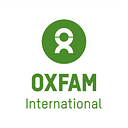Coronavirus: An Unequal Education Crisis
With 90% of learners experiencing month-long school closures and more than 65% still out-of-school due to the Coronavirus pandemic, parents all over the world have gained new appreciation for the importance of teachers.
When schools close, how well children do largely depends on their parents’ income. Children of wealthy parents will fare better. They’ll be safe, are more likely stay healthy, they have food in their bellies, and they’ll likely be able to access online or distance learning.
This is not true for children in poorer families — not in extremely unequal wealthy countries like the United States, and not in poorer countries either. When countries depend on home-schooling and parents supporting lessons, especially using digital technology (which most people don’t have access to), education inequalities will worsen — as only wealthier children will benefit.
Schools provide more than learning
During this pandemic, children have missed out on months of lessons, social connections with their peers and inspiration from their teachers. But the problem is bigger than that, schools have a much broader impact on society than simply education.
Hundreds of millions of children around the world get their main daily meal at school. Without schools, many families will struggle, and more children will go hungry. This is not just in poorer countries but also in deeply unequal countries such as the US or the UK.
Schools are safe places for children and young people to stay while their parents work. When children are at home all day, especially if their parents have to work, the likelihood of accidents, violence, abuse and rape increases; and with reduced or no contact outside the home, this goes undetected. In Sierra Leone, during the Ebola epidemic, reports of child abuse rose dramatically and teenage pregnancies increased by up to 65%. The consequences of school closures will impact the lives of these children, and especially girls, well beyond the end of the pandemic. Many of these will never return to school.
If the support children receive at home determines their educational outcomes, then inequalities will simply be repeated generation by generation.
This isn’t just about the educational, nutritional and safety outcomes for kids; the pandemic is a sharp wake-up call to the importance of how we think about our education systems.
An unsurprising outrage
After systematically under-funding public education for decades, public education systems around the world struggle at the best of times.
Now teachers are being asked to rapidly, fundamentally change how they work with the children and to do so at a distance from one day to the next.
For-profit EdTeach companies can smell the potential profit from governments struggling to find a way to teach hundreds of millions of children and youth at a distance. However, high-tech, private solutions are not the solutions for the masses.
Schools need to be free, quality, accessible — education is a right, not a commodity.
At the same time, stories have come out that low-fee, for-profit school chains have stopped paying their teachers during this crisis . This lack of civic sense — of citizenship — is an unsurprising outrage. It is yet another reminder that those who deliver education must be motivated by education, not extracting a profit margin.
How to save education in a time of crisis
As we look at how children and youth can make it through the pandemic in the best possible way, here are three key things for education systems in times of crises:
1. As schools are closed, governments need to focus on reaching ALL children, including the most marginalized (rural areas, the poorest, girls, children with disabilities).
Often the simplest solutions are the best. Depending on where children live, radio-lessons will often reach more children than TV, which again reaches more people than anything internet-based. Where possible, printed materials, such as workbooks and worksheets might be distributed to families whose access to other media is limited. All solutions should be based on the local context and teachers need to be at the heart of them: Teachers know which children will need extra support and how to reach them.
2. Authorities need to implement measures to provide other things that children might need: psycho-social support, food and security are chiefly among them.
Finding ways to deliver food to families, and to arrange for child-care when parents cannot be present, are priorities. These measures will also support girls and women, because they are absorbing the additional care burden that school closures bring, and for many girls, care duties increasing will displace any chance they have at continuing their education during the crisis. We cannot accept seeing children not returning to school once they re-open due to malnutrition, violence, accidents, unwanted pregnancies or continued care responsibilities.
3. Funders of education, mainly the governments running the education systems, but also donors, need to stop putting blind faith in private and market-based solutions.
Trust the teachers and strengthen public education systems, now and when we rebuild from this crisis.
This entry posted 24 June 2020, by Kira Boe, Oxfam’s Global Education Policy co-Lead. Ms. Boe works at Oxfam IBIS in Copenhagen, represents civil society on the Board of Directors of the Global Partnership for Education and has a background in development, politics and education. She is passionate about the equalizing power of good quality, transformative, free, public education for all.
Photos taken pre-COVID19.
